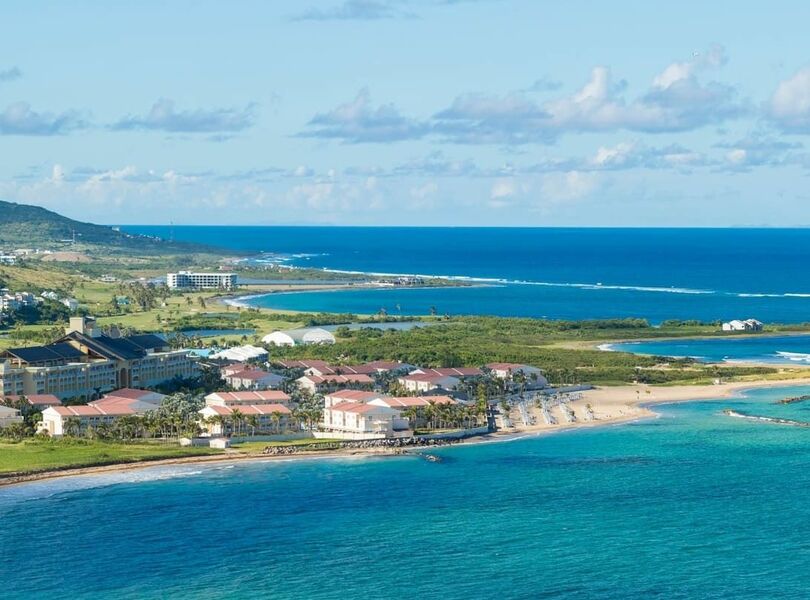Saint Kitts and Nevis’s citizenship by investment program is the ‘Platinum Standard’ for the sector of golden passports and the pioneer for the global investor immigration industry. One such governmental programmes of citizenship by investment was introduced on these tropical islands in 1984. Saint Kitts and Nevis’s passport offers visa-free access to 150 countries worldwide including such popular destinations as the United Kingdom, Schengen Area and Singapore.
Among other advantages we can point out a chance to get a U.S. 10-year multiple entry visa, tax benefits, attractive conditions for relocation of companies, a zone of free trade and a regular flight connection with the whole Western world, no stay requirements and an opportunity to obtain a second citizenship.
The programme inevitably holds the leading position in the CBI (Citizenship by Investment Programs) Index of the annual guide to global citizenship by Financial Times’s PWM.
Let’s overview what innovations to expect since 1 January 2023.
-
The new structure of State institutions
The government has established a new regulatory body for the greater transparency and accountability of the programme – the CIU Board of Governors. The Governors will be responsible for high-level advising the Prime Minister regarding the management and operation of the CIU, as well as reviewing and monitoring the development and policies of the CBI programme.
The newly appointed Technical Committee is in charge of ensuring that all due diligence background checks and spot checks are comprehensively completed on all CBI applications.
The changes are implemented in order to increase the efficiency and accuracy of the application processing without compromising the integrity of the programme and preserving the strict rules of Due Diligence. At the same time, to ensure and amplify the popularity of the programme and attract more investors from third countries.
-
SGF (Sustainable Growth Fund) Limited Time Offer: 1 January 2023 – 30 June 2023
From 1 January to 30 June 2023 the CIU introduces special terms for investors under which the investment contribution to SGF is reduced by $25,000. This option for getting Saint Kitts and Nevis citizenship by investment is chosen by the vast majority of investors.
Under the LTO, the minimum amount of SGF contribution is as follows:
Main applicant: $ 125,000
Main applicant and a spouse: $ 150,000
Main applicant and two dependents: $ 170,000
Each additional dependent under 18: $ 10,000
Each additional dependent over 18: $ 25,000.
From1 July 2023, the minimum amount of SGF contribution will be adjusted as follows:
Main applicant: $ 150,000
Main applicant and a spouse: $ 175,000
Main applicant and two dependents: $ 195,000
The amount of SGF contribution for other additional family members under one application will not be changed.
Moreover, CBI applications submitted under the LTO will benefit from the shortening of processing timeframe from 90 days to 60 days.
-
Changes in Real Estate Investment Option
All real estate developers, previously designated as Approved Projects, are required to apply to the Board of Governors of the CIU to have them designated as an Approved Development.
The minimum investment amount remains $ 200,000 for purchasing a share of a resort, and $400,000 for purchasing a private single-family dwelling.
Approved Projects:
- cannot be resold within 7 years;
- cannot be resold to any other CBI applicant;
- cannot be converted into apartments or condominiums.
Two or more main applicants can apply for Saint Kitts and Nevis’ citizenship by investment together having bought a property in joint ownership, however, each applicant is required to make a contribution to SGF worth not less than $400,000.
Owners of private dwellings that were previously designated as Approved Projects are required to apply to the CIU to re-submit the application with a request to include their property into a relevant list of Approved Projects.
-
Public Good Investment Option
The category of AIO (Alternative Investment Option), that implied investment in social housing, will be abolished, and replaced by Public Good Investment Option (PGIO). Although, the essence will not change: it will still be investment in social infrastructure and housing, the minimum amount of contribution is $175,000.
The projects previously designated for AIO will lose such designation within 45 days after the entry into force of the new rules. To prevent this from happening, developers and investors are required to submit an application to the Board of Governors swiftly.
-
Government Fees for CBI Application
Choosing PGIO or investments in real estate, an investor, in addition to the mandatory contribution, is required to pay additional government fees for submitting an application and DUE Diligence processing.
Let’s consider in more detail.
Application Fee
Main applicant – $ 25,000
His/Her spouse – $ 15,000
A dependent under 18 – $ 10,000
A dependent over 18 – $ 15,000
An Accelerated Application Fee (processing within 60 days)
Main applicant – $ 45,000
His/Her spouse – $ 32,500
A dependent under 18 – $ 22,500
A dependent over 18 – $ 37,500
Due Diligence Fee
Main applicant – $ 7,500
A dependent over 16 – $ 4,000
Application Processing Fee
$ 250 – per each person
The context
The changes in Saint Kitts and Nevis CBI Programme were predictable. The authorities of Saint Kitts and Nevis appointed a new CBI Unit Head – Michael Martin.
Martin has replaced Les Hann who resigned as CEO of the Unit after 7 years of working in this position.
In his official speech after appointment Martin hinted that his work will mark the beginning of a period of significant change in Saint Kitts and Nevis’ Citizenship by Investment Programme.
Change of leadership of CBI in the Caribbean and the following important changes in the structure traditionally match with the change of the government and political landscape.
The appointment of Martin happened 4 months after the rise of the Labour Party and its leader – the new Prime Minister of the country Terrance Michael Drew.
In fact, a significant part of Dr Terrance Drew’s pre-election promises was redistribution of the programme’s income directly to the citizens of the country. For almost four decades as the programme is on, it is the first case when the government chooses such a strategy.
In December residents of Saint Kitts and Nevis received citizenship programme dividends from $92 to $185. Such payments are scheduled twice a year.













